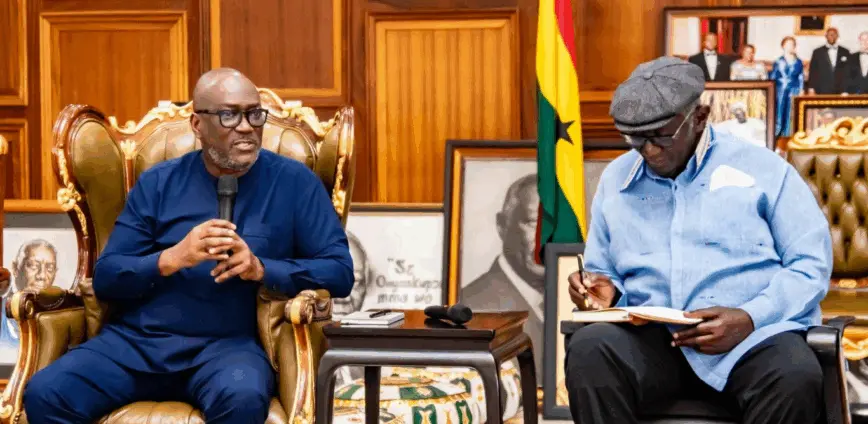The rising tide of unregistered weapons in Ghana has sparked serious concern, with some officials warning that the situation has reached alarming levels. Minister for the Interior, Mohammed Mubarak Muntaka, recently voiced these concerns during a working visit to the Northern Region, highlighting the potential threat to national security. The focus of his message was clear: the proliferation of unregistered weapons in Ghana demands immediate and comprehensive action.
Minister Muntaka’s statements underscore the urgency of addressing this critical issue. This article examines the minister’s concerns, the potential dangers posed by these illegal arms, and the government’s proposed strategies to tackle this growing problem.
The Alarming Rise of Unregistered Firearms
Minister Muntaka made clear the gravity of the situation. “The number of arms in the hands of our citizens is getting to an alarming level,” he stated, emphasizing the increasingly frequent and indiscriminate gunfire incidents. His visit to the Northern Region, an area already facing security challenges, further amplified these concerns. He stressed the untraceable nature of these unregistered weapons, making it exceedingly difficult for law enforcement to track their origins and prevent their misuse.
The proliferation of unregistered weapons fuels instability and crime. The ready availability of these firearms raises the risk of escalating conflicts, potentially overwhelming the capacity of the Peace Council, police, and other security agencies. The minister’s statements also implicitly acknowledged the difficulty in quantifying the exact number of unregistered weapons in circulation, a problem in itself, and one that hampers effective countermeasures.
Government’s Response and Proposed Solutions
A key component of the government’s proposed strategy is the implementation of a nationwide firearms registration program. Minister Muntaka emphasized the need for a national response to ensure that all firearms are properly registered and accounted for. This registration process would allow authorities to track weapons, identify illegal arms, and hold owners accountable for their use. However, achieving full registration presents significant logistical challenges, including reaching remote areas and overcoming potential resistance from those who possess these weapons illegally.
Minister Muntaka advocated for leveraging technology and fostering partnerships with the private sector to enhance national security. “We have to get private people to partner with the government… Now technology is so easy…,” he noted. This reflects a growing recognition that modern technological solutions are essential for detecting illegal arms imports and sales. Collaboration between the government and private technology firms could provide innovative tools for monitoring borders, tracking firearm sales, and identifying individuals involved in the illegal arms trade. He suggests this collaborative use of technology could safeguard the country and drastically reduce the number of unregistered weapons in Ghana.
Implications and Future Outlook
Addressing the surge in unregistered weapons requires a multi-faceted approach that tackles the underlying factors driving the demand for these arms. These could include security concerns at the local level or a distrust of formal law enforcement that leads citizens to seek their own protection. The future focus should include thorough investigations into the import and sales channels that supply these illegal weapons.
Given the urgency conveyed by the Minister’s statement, individual vigilance is key. Citizens must actively support efforts to curb illegal arms by reporting suspicious activities to the appropriate authorities. Increased public awareness campaigns are needed to educate the public about the dangers of unregistered weapons and the importance of responsible gun ownership.
In conclusion, the Minister’s concerns highlight the urgent need to address the rising number of unregistered weapons in Ghana. A collaborative approach involving the government, private sector, and vigilant citizens is crucial to curbing this dangerous trend. By staying informed and supporting initiatives aimed at addressing this critical issue, Ghanaians can contribute to a safer and more secure future, free from the threat posed by unregistered weapons in Ghana.
Image Source: MYJOYONLINE






















